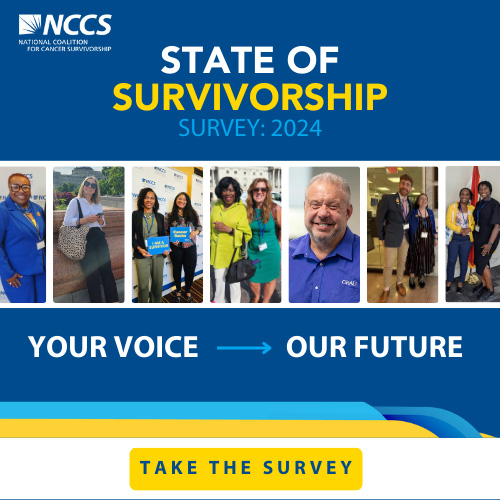Meeting Consumer Expectations and Health Needs in the New Health Insurance Exchanges
Cancer Policy Matters Guest Post by Tanisha Carino, Executive Vice President, Avalere Health
The Affordable Care Act provides an unprecedented opportunity for millions to gain coverage through the exchange marketplace by enrolling in a qualified health plan (QHP) that covers essential health benefits and limits financial exposure to excessive out-of-pocket costs.
More than 8 million individuals have signed up for a QHP to date, and over 60 percent of them selected low-cost Silver and Bronze plans, demonstrating that low premium prices are driving consumer plan selection in the market. But what happens when these exchange enrollees need to access care? Do these insurance products meet consumer expectations?
As the new exchange marketplace takes shape, plans are under tremendous pressure to price products competitively while also balancing the generosity of their benefits. Avalere’s PlanScape analyzed exchange benefits using data released by the federal government for plans in the Federally-Facilitated Exchange and an in-depth review of the formulary design for a subset of plans participating in large exchange markets.
Based on Avalere’s analysis, monthly premiums for Silver plans average $263 for 27-year-olds to $439 for 50-year-olds nationwide. However, once they need to access their benefits, medical deductibles may be prohibitively high, averaging $4,959 and $3,132 for Bronze and Silver plans, respectively. By comparison, the average medical deductible among employer plans that have a deductible is only $1,135. While these deductibles are critical for plans to remain price competitive and meet the value of benefits required for each metal level, chronically ill patients may not be prepared for the up-front costs that will be required to meet the deductible.
In terms of formulary coverage, exchange plans cover a similar number of drugs as plans commonly sold in the employer market. However, exchange plans impose utilization management on self-administered oncology drugs at a higher rate than employer plans (43 percent and 30 percent, respectively), suggesting that providers will need to work with patients enrolled in exchange plans to file prior authorizations and help them access oncolytics.
As the exchange marketplace evolves, cancer patient advocacy organizations will play an instrumental role in ensuring that exchange enrollees have adequate access to needed cancer treatments and services.
Patient cost-sharing associated with oncology drugs on exchange plans can also present challenges for cost-sensitive patients. Based on Avalere’s analysis, Silver plans commonly impose coinsurance – rather than a flat copay – for oncolytics, particularly for molecular target inhibitors and antiangiogenics. Cancer patients in need of these treatments may shoulder higher costs than anticipated and may bear the bulk of those costs early in the calendar year before they meet their out-of-pocket caps. Assuming cancer patients can reach their cap though, they will benefit greatly from these new ACA out-of-pocket maximums ($6,350 for an individual in 2014), which will help prevent medical bankruptcy.
Lastly, to keep premiums down, most insurers designed narrow provider networks, some of which exclude leading cancer centers. Prior to a cancer diagnosis, consumers may not think to look for leading cancer centers when buying a plan, and even those who do may struggle to asses network breadth. To date, only two states use searchable tools to determine if a patient’s provider is covered, highlighting the need for these tools to be widely available in other states.
As the exchange marketplace evolves, cancer patient advocacy organizations will play an instrumental role in ensuring that exchange enrollees have adequate access to needed cancer treatments and services. This will include targeted advocacy efforts around:
- Increasing plan transparency on coverage of drugs and providers so that consumers are aware of their exposure to cost-sharing;
- Educating consumers about their options so that they can make informed coverage decisions; and
- Building awareness among providers around exchange cost-sharing and utilization management so they can help patients access needed drugs and services.
Until consumer expectations align with the affordability and generosity found on exchange plans, patients shoulder the costly growing pains created by the new marketplace.
Tanisha Carino, Executive Vice President, oversees Avalere’s strategic advisory and research services for the nation’s leading life sciences companies. For close to a decade, Tanisha has worked with senior leadership in FORTUNE 500 companies to establish organizational goals and align their internal functions to capture opportunities and mitigate challenges related to evolving regulatory, evidence, and commercial trends. Follow Tanisha on Twitter: @tcarinoavalere.
About Avalere: Avalere Health is a strategic advisory company whose core purpose is to create innovative solutions to complex healthcare problems. Based in Washington, D.C., the firm delivers actionable insights, business intelligence tools and custom analytics for leaders in healthcare business and policy. Avalere’s experts span 180 staff drawn from Fortune 500 healthcare companies, the federal government (e.g., CMS, OMB, CBO and the Congress), top consultancies and nonprofits. Follow Avalere on Twitter: @avalerehealth.







